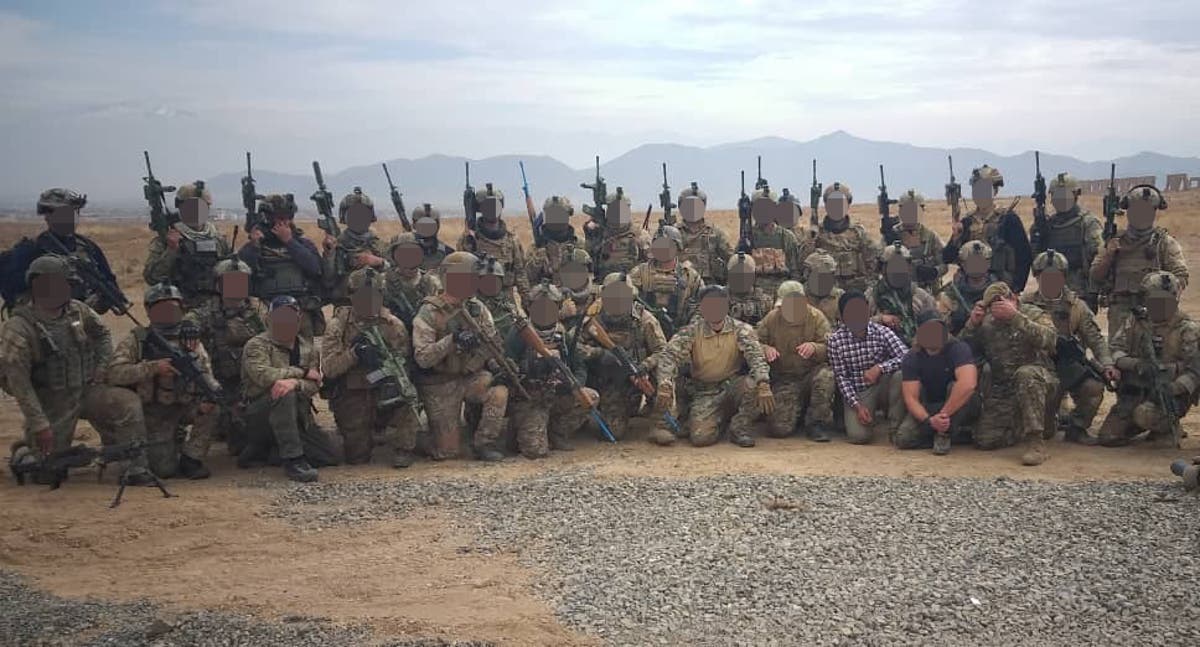- On the Circuit
- Posts
- 🚨 Red Alert: Exposing China's Cyber Stealth War
🚨 Red Alert: Exposing China's Cyber Stealth War
Plus: Dictators do Disneyland with Dodgy Docs
Hi Circuiteer! This week, we’re zeroing in on China's alarming cyber threat and capabilities, as highlighted by the FBI. We dissect the implications of cyber espionage and targeted attacks on Western infrastructure. In addition to issuing stark warnings, we offer some expert perspectives for those of us still grappling to come to terms with this digital menace.
Elsewhere, we shine a spotlight on the complex relationship between Executive Protection and Family Offices, addressing the challenges and opportunities for security professionals working in this exclusive sphere.
Stay with us to the end as we share the intriguing tale of North Korean leaders using fake passports for covert travels.
TOP STORY
FBI Battle China's Digital Onslaught
In his opening statement to the House Select Committee on the Strategic Competition Between the United States and the Chinese Communist Party (CCP), FBI Director Wray emphasized the grave threat China poses through its aggressive cyber and espionage activities.
Hackers, directed by the Chinese government, have targeted essential services, including water treatment facilities, the electrical grid, and oil pipelines. This cyber warfare extends beyond mere preparation for potential conflicts; it’s a clear and present danger to civilian life, with the possibility of direct attacks against the West in times of crisis.
China's cyber activities are part of a broader strategy to undermine Western economic stability. Digital theft, bolstered by human espionage and deceptive practices in business dealings, is intended to reduce the US’s technological edge and compromise security.
The FBI's response has been to leverage its expertise, combining specialists in cyber, counterintelligence, and criminal investigations with the private sector, international allies, and key U.S. agencies like the NSA, Cyber Command, and CISA.
This buddy-buddy system of cooperation was demonstrated with the recent disruption of the Volt Typhoon operation, which neutralized a direct threat to critical infrastructure and was facilitated by Chinese state-sponsored hackers.
Despite this success, Wray warns that the disparity in scale between China’s cyber capabilities and current US defensive measures is stark. The sheer volume of threats posed by China’s hackers outstrips all present resources, leaving the US and its allies on high alert as we approach pivotal years marked by the CCP for strategic initiatives.
Expert Insight:
“Despite progress in legislation to drive critical national infrastructure security, at least in the UK, we have seen that enforcement and takeup has been slow at best. Given that many of the systems involved are legacy and were often built without consideration of security by design, from a technological point of view, it is an area where there are genuine concerns.
The main saving grace is that while hostile nation-states actively seek to pose a threat, they seem less inclined to make use of it other than for opportunistic criminality. Profit-seeking activities such as ransomware are likely to be at least somewhat independent of the national authorities and in the interests of their semi-independent APTs (Advanced Persistent Threats).
These threats could be severe if motivations change and causing harm becomes a higher priority than profit. Without significant, and more importantly, effective investment into critical infrastructure security, we must be prepared for the harm that will follow."
- James Bore, Cybersecurity Professional
READER POLL
What strategy would be most effective in combating China's cyber threat? |
GLOBAL SITREP
UK Grants Sanctuary to Afghan Special Forces Allies After Policy Reversal
In a pivotal decision by the UK government, approximately 400 Afghan special forces soldiers, who collaborated closely with British forces against the Taliban, are now eligible for sanctuary in the UK. This reversal follows investigative reports revealing the dire situations these soldiers faced, including torture and murder, after being initially denied assistance.
The soldiers, part of the elite Afghan Commando Force 333 and Afghan Territorial Force 444, known as the Triples, were previously overlooked by the Afghan Relocations and Assistance Policy (Arap) scheme.
Campaigners and veterans welcomed the move, urging a swift process to ensure the soldiers and their families' safety.
This decision represents a significant shift in policy, recognizing the contributions and sacrifices of these Afghan soldiers and their families, and addresses the urgent need for their relocation and safety.
US Strikes 85 Iran-Backed Targets in Retaliation for Troop Deaths
The United States launched airstrikes on 85 Iranian-backed militia targets across Iraq and Syria as a retaliatory measure for a drone attack in Jordan that resulted in the deaths of three American soldiers.
President Joe Biden stated, "Our response began today. It will continue at times and places of our choosing," emphasizing a tiered response to the aggression.
The attacks, which included long-range B-1 bombers, resulted in the deaths of 39 individuals, combining military personnel and civilians, as reported by local authorities which also noted, "The Syrian military and Iraqi officials said the attacks killed security forces members as well as civilians."
Iran criticized the U.S. actions as a "strategic mistake," quoting an Iranian Foreign Ministry spokesman who condemned the attacks as a violation of sovereignty and a threat to regional stability. The U.S. aims to degrade militia capabilities while avoiding further escalation, highlighting the complex challenge of countering Iran-backed forces without broadening the conflict.
These recent developments represent a significant shift in dynamics, increasing the need for vigilance in a landscape where tensions can escalate rapidly. This situation serves as a potent reminder of the 2012 Benghazi attack and the potential dangers of underestimating the impact of regional conflicts on global security.
Security professionals should be particularly watchful for retaliatory cyber-attacks, regional militia activities, and threats to infrastructure.
In the aftermath of these strikes, monitoring the geopolitical landscape and adjusting security protocols is crucial. Review your current cybersecurity defenses, conduct regular risk assessments for assets connected to the Middle East, and strengthen your communication channels with local security forces and intelligence agencies.
Let’s hope that the lessons of the past have been learned and that we avoid any repetition of Benghazi.
British Military at a Crossroads: Threat to US-UK Defense Alliance
Britain's military challenges, marked by staffing shortages and procurement issues, have implications for its strategic relationship with the United States, especially in joint military operations like recent attacks on Houthi rebels in Yemen.
Despite maintaining Europe's largest defense budget and actively participating in global conflicts, the UK's dwindling military capabilities raise concerns about its ability to sustain its role as America's key ally in future endeavors.
As the UK navigates these military challenges during an important year of elections, the future of Britain's role alongside the US in international peacekeeping and defense tasks appears increasingly uncertain, necessitating urgent reforms to ensure continued strong bilateral defense cooperation.
Time to Add AI to Your Portfolio
Marketing is an art, not a science — or, at least it was.
RAD AI is an essential AI technology that tells brands who their customer is, and how to best create content that significantly boosts ROI. And 3X revenue growth this year suggests it's working.
Major clients like Hasbro, MGM, and Sweetgreen — 6,000+ investors already trust RAD including VCs, Fidelity and execs from Google/Amazon. Over $27M invested, backed by Adobe Fund for Design.
Get in on the ground floor! Learn more and invest here.
83% Subscribed, Invest Before Feb. 16th, Closing Soon.
SNAPSHOTS by RANE
🇮🇱 Israel: The United States has sanctioned four Israeli settlers for inciting violence in the West Bank, marking the first unilateral U.S. sanctions against Israeli settlers for actions in the territory.
🇺🇸 US: The Biden administration plans to strike Iranian-linked targets in Syria and Iraq in retaliation for the drone attack that killed three American troops in Jordan. The announcement gave Iran time to withdraw prominent members of the IRGC, a calculated move to prevent further escalation.
🇺🇦 Ukraine: EU countries pass a €50 billion aid package for Ukraine until 2027, with Hungary's Viktor Orban lifting his veto. Annual reviews of the aid will occur without a vote, limiting Orban's power to block future funding while allowing EU to cease aid if necessary.
🇬🇧 UK: London is considering UN recognition of Palestinian statehood as part of a peace plan to demilitarize Hamas. The move may strain UK-Israel relations due to Israel's opposition to recognizing Palestine and Hamas' stance in Gaza.
🇪🇸 Spain: Spain's parliament rejected Prime Minister Sanchez's amnesty bill for Catalan separatists involved in the 2017 secession attempt. The Catalan separatist party Junts wants a broader amnesty scope, including for those accused of terrorism.
RECOMMENDED LISTENING
The Protectors Survival Guide to Working with the Family Office
Protectors sometimes see Family Offices as 'Unicorns' because of their inaccessibility. They have also been accused of not paying enough attention to the type of Executive Security they procure.
Tune in as we welcome Olivia Cooper, Head of Private Wealth and Family Office at Axiom DWFM to set the record straight and ask:
How can Executive Protection better approach Family Offices when looking to provide services?
Where can EP add more value and become a trusted security advisor?
What is keeping UHNWs up at night?
What would make a trusted advisor stand out?
How is succession planning related to Executive Risk Management?
RECOMMENDED READING
Friend of the Circuit and a regular columnist in the magazine, James Bore, has released his long-awaited book - The Cyber Circuit.
Readers will gain a deeper understanding of cybersecurity issues, industry trends, and practical strategies for safeguarding themselves online.
James' personal anecdotes and experiences offer inspiration and guidance for seasoned professionals and those new to the field, making this book a valuable resource for anyone looking to navigate the complexities of cybersecurity confidently.
Readers of On the Circuit can get a 10% discount using the code: CIRCUITBREAKERS10
ELSEWHERE ON THE CIRCUIT
When Dictators go to Disneyland
This one is for those of you who hanker after a good Cold War-era spy novel. North Korean leaders Kim Jong Un and his late father, Kim Jong Il, reportedly used Brazilian passports in the 1990s to apply for Western visas. According to senior European security sources, the passports were obtained under false pretences with the likely intended use of providing the secretive regime with potential escape routes or facilitating undisclosed travels.
Reuters unveiled that the passports, bearing the faces of the Kims under the aliases Josef Pwag and Ijong Tchoi, aimed to secure visas from several foreign embassies. This revelation not only highlights the Kims' clandestine movements but also their unusual method of international exploration.
The documents are stamped "Embassy of Brazil in Prague" and dated February 26, 1996, with facial recognition technology confirming the identities of the Kims. The Brazilian Foreign Ministry's ongoing investigation and the silence from North Korea's embassy in Brazil only add further intrigue.
Speculation on the passports' uses include potential visits to Brazil, Japan, and Hong Kong. Historical references even suggest Kim Jong Un went on a childhood visit to Tokyo Disneyland.
What other secrets lie behind the closed doors of the world's most isolated regime?
PREVIOUS READER POLL - RESULTS
Q: What will be the primary challenge for security professionals protecting high-profile individuals in this election year?
🟩🟩🟩🟩🟩🟩 🌎 Increased Geopolitical Tensions and Conflicts (37%)
🟩🟩🟩🟩🟩🟩 ✊ Internal Political Instability and Civil Unrest (37%)
🟨🟨🟨🟨⬜️⬜️ 🤖 Cybersecurity and Information Warfare Threats (26%)
⬜️⬜️⬜️⬜️⬜️⬜️ Other. Let us know your thoughts (0)
***
Thank you for sticking with us to the end; we appreciate your support.
Stay safe, and keep looking out for one another.
P.S. If you like this newsletter and want to support it, this week, there are 3 ways! PICK ONE right now before you forget:
Get a Subscription to the Circuit Magazine.
Promote yourself to over 10,000 industry professionals by sponsoring this newsletter.
Forward this newsletter to a friend.







Reply